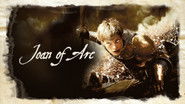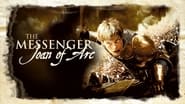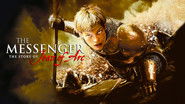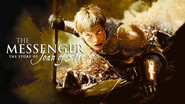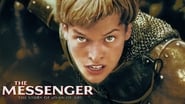betty dalton
John Malkovich. Faye Dunaway. Dustin Hoffman. I will see any movie with those grandmasters. Milla Jovovich plays a part that was written for her. She is the perfect Joan of Arc. I really can believe in her. And with these great actors who all perform at their best we add the maestro Luc Besson to the mix. I think "Joan of Arc" is his best work, next to "Leon", which I saw back to back recently without realizing at first that they were both written produced and directed by the french virtuoso called Luc Besson, who also produced "Taken" and the "Transporter"."Joan of Arc" is a story about a girl (Milla Jovovich) in the Dark Ages who got a lucid vision in which she is ordered by God to fight for her King (John Malkovich). Will she succeed in her quest ordained by God? "Joan of Arc" tells the standard story that any movie does about knights and kings, but I havent ever seen the dark ages being portrayed so incredibly glorious and bloody. What a shattering tragedy too. No happy end, a viscious one. The film starts gloriously. Ends with heinous crimes and defeat. But hey, it is history which is being portrayed here. And history does not care about box office hollywood happy endings. But the producer of "Taken" who made this movie, still gives this defeat at the end a glorious ring. If you are a sucker for Milla Jovovich (Resident Evil) then you will love this movie. But you are gonna have to suck mud or to put it more politely: the NOT happy ending contains half of the movie. If you can swallow the shattering defeat end part of the movie then this will be a great knights movie for you: resident evil goes medieval. And then better!
spacey_head77
"The Messenger: The Story of Joan of Arc" gives no subtleties in its presentation of Joan of Arc. Its version of Joan comes from the theory that she had schizophrenia, to the exclusion of any other possibility. However, in "The Messenger: The Story of Joan of Arc"The script was badly written, confusing, and pulled the audience out of the suspension of disbelief. The writers ignored certain facts, and skewed others. Most importantly, they invented scenes and dialogue that 1) would be out of character for Joan and 2) we know for certain that we do not know. For example, in the scene when Joan rushed to her parish church and sloppily drank of the Eucharist––she never would have done that. The historical Joan had too great a religious respect to commit a deadly sin such as that. Second example, the writers include the dialogue wherein she tells the Dauphin about her Revelations. No one knows what her Revelations were, so the writers of that scene had no basis of that whatsoever; the influence of their schizophrenic agenda is clear in the dialogue and Milla Jovovich's acting.The theory that Joan had schizophrenia is a legitimate argument. However, I found this film's presentation offensive and inadequate because of its lack of historical and realistic respect. "The Messenger: The Story of Joan of Arc" set its theory up as the final and only theory, and bashed all other theories and monarchies and histories before it, seemingly because they existed before this film was made.
SnoopyStyle
It's 15th century France. Joan of Arc (Milla Jovovich) is the teenage warrior leading the fight against the English.This is Luc Besson's grand take on the heroine Joan of Arc with lots of gusto. Milla Jovovich certainly has the crazed intensity of a zealot. Sometimes, it drifts towards camp. Considering she got the job because she was married to Luc Besson at the time, it could have gone a lot worst.The basic storyline is well known. The best parts of the story happens midway in the movie. That's where the big battle scenes occur. Certainly the battles are big especially for using real action in modern movies. After the battles, the story drags as she gets captured and tried. It may be better to climax the film with the big win in Orléans. Keep the slower parts as a postscript.
Dave from Ottawa
...but it still made interesting viewing. More biographies of Jeanne d'Arc exist than of any other person, and any attempt to portray her rather incredible life as France's greatest heroine and martyr on film can expect to encounter a similarly large number of second-guessers. This is precisely what happened when this picture came out. Reviewers went on at length about what the picture should have been about, and how Joan should have been portrayed (and by whom), leaving readers to wonder what they thought of the picture that HAD been made. This tendency to review the picture they wish had been made is a classic failing in many critics and this picture seemed to bring it out especially often.The picture that Luc Besson made here deserves to be appreciated on its own merits. It is visually stunning, rousingly action-packed, and full of interesting period details. Yes, casting his supermodel wife Milla Jovovich in the lead was a risky choice, as her looks were hardly those of a typical medieval peasant. Yes, her performance did not resonate with the period the way one by a more classically trained actress might, although she was clearly never trying to be Ingrid Bergman. Still, Milla's hyperactive personality made her interesting and watchable as a historical person about whom so much has been written, who nonetheless existed so far back in the past that she lacks a strongly identifiable humanity. When somebody makes a better statue than a person, as Joan does from a contemporary viewpoint, odd casting choices can be forgiven if they work. Milla's twisty mannerisms, rolling eyes and whispery speech give the viewer constant occasions to ponder just how much of Joan's fanaticism came from genuine devotion to God and the church and how much was just an under-medicated personality disorder. This is actually one of the key scholarly issues surrounding Joan's life, and the picture brings it to the fore in its latter part as Joan herself tries to come to terms with her own claims of divine communication by means of a debate with Dustin Hoffman as her confessor-priest/conscience. That Besson takes no particular viewpoint here is an interesting choice, and one which actually helps the viewer to understand why Joan's story has compelled so many generations of historians.The political aspects of Joan's life and legend were also dealt with in a nicely balanced fashion. Like many figures in times when political and national alliances changed with the seasons, Joan herself blew back and forth between being tremendously useful to the French throne at times and dangerously inconvenient at others. Fame is a powerful commodity at any time, and the picture carefully tracked the rise and fall of Joan's fortunes as she watched hers be manipulated, leveraged and ultimately put on trial.I thought a lot of The Messenger and recommend it. Religious and historical scholars are advised to approach with caution.
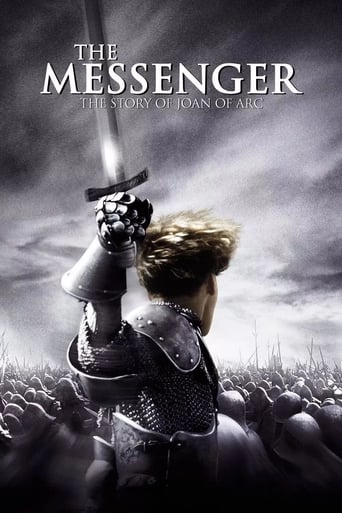
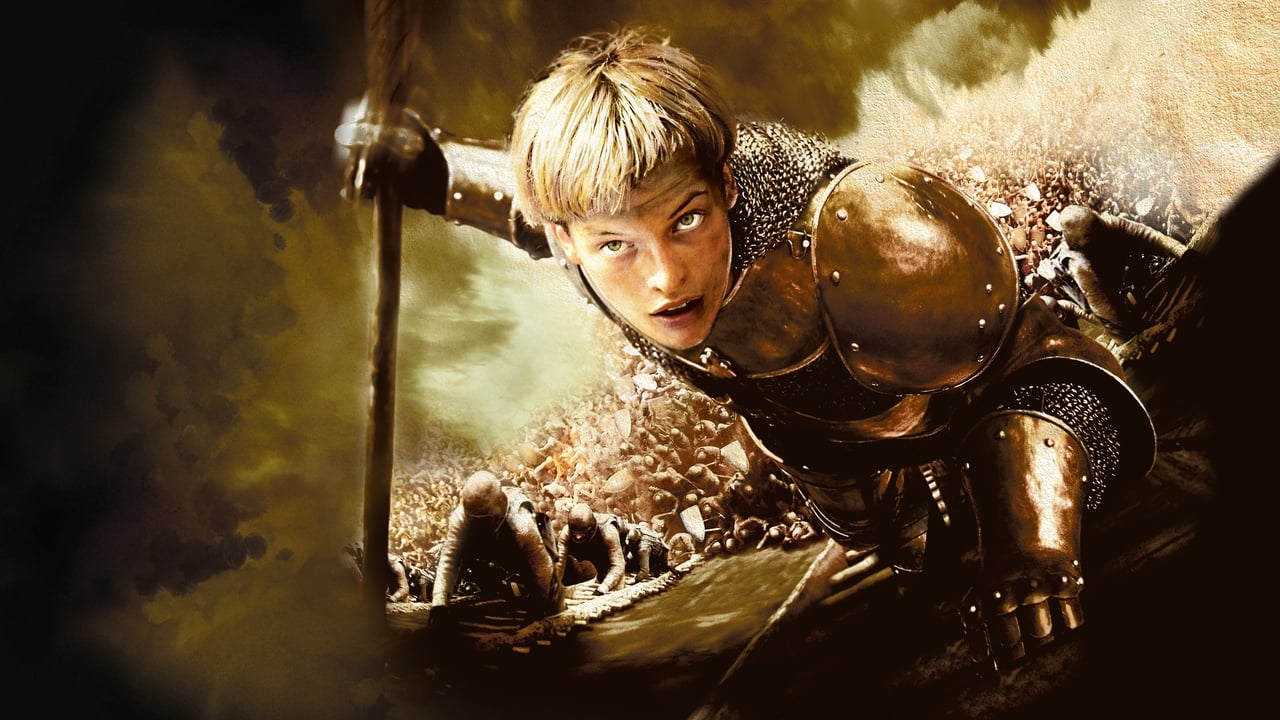
 AD
AD


